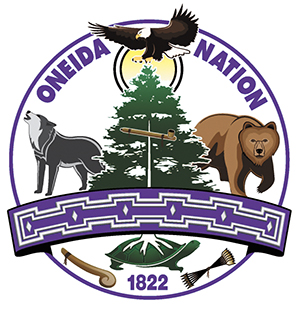
Recently there has been a number of articles across various outlets in regard to the recent land disputes between Oneida Nation and the Village of Hobart residing within the Oneida Nation reservation. While much of Green Bay and other villages also reside, at least in part, on Oneida reservation, it is Hobart that has been challenging Oneida Nation’s right of way to land use such as issuing a citation to the nation for holding their Big Apple Fest in Hobart.
Since 2020, Oneida Nation had been in court with the village of Hobart over the citation of the Big Apple Fest and Oneida Nation has recently won this dispute as reported by Native Nation News. How they did so was in part due to utilizing other wins, such as the McGirt V. Oklahoma federal case in 2020 that upheld the sovereignty of Native Nations within approximately one-third of Oklahoma. In the federal case it was proven that Congress never acted with full, clear intent to dissolve any part of reservation land in Oklahoma.
The Supreme Court of the United States upheld the right to criminal prosecution of Native peoples on Native land. This is because it is sovereign land. Land that is held in trust by the United States to be designated land for Indigenous peoples to live fully on in their own ways. Under treaty laws, state and local governmental powers have no authority over Natives on their land, only the federal government does, and only federal agents can carry out the will of the federal government on Native lands.
However, in both McGirt V. Oklahoma and Oneida V. Hobart, non-Natives have challenged the sovereign rights of Natives and have lost their challenges. To give more justice, diligence, and visibility to the case with Oneida, a person of the Oneida Nation, Sara Denny (a member of AIM Indian Territory), was interviewed on her perspectives.
“Because Hobart wouldn’t have that much if it wasn’t for the reservation,” said Denny’s explanation to why she said she was mad at the issue as a whole. Her further response to her over all feelings towards the challenges and what she views as her duties, both as a AIM IT member and a person of Oneida Nation, is that she needs to be part of protecting sovereignty.
Diving into the topic of re-acquisition of Tribal Land, Denny had given not just an opinion on if it could happen, but how. She herself has been studying tribal law specifically for re-acquisition of land and states that she believes that Oneida’s win will help further land back momentum.
“ACTUALLY, if we can prove that tribal land in the first place, or trust land, I think once we dig deeper and deeper enough, we might be able to slowly bring our land back. Like, slow by slow, [we can talk] on how [did] they receive that land? How did they purchase that land? Where did it come from? It was ORIGINALLY tribal land.”





